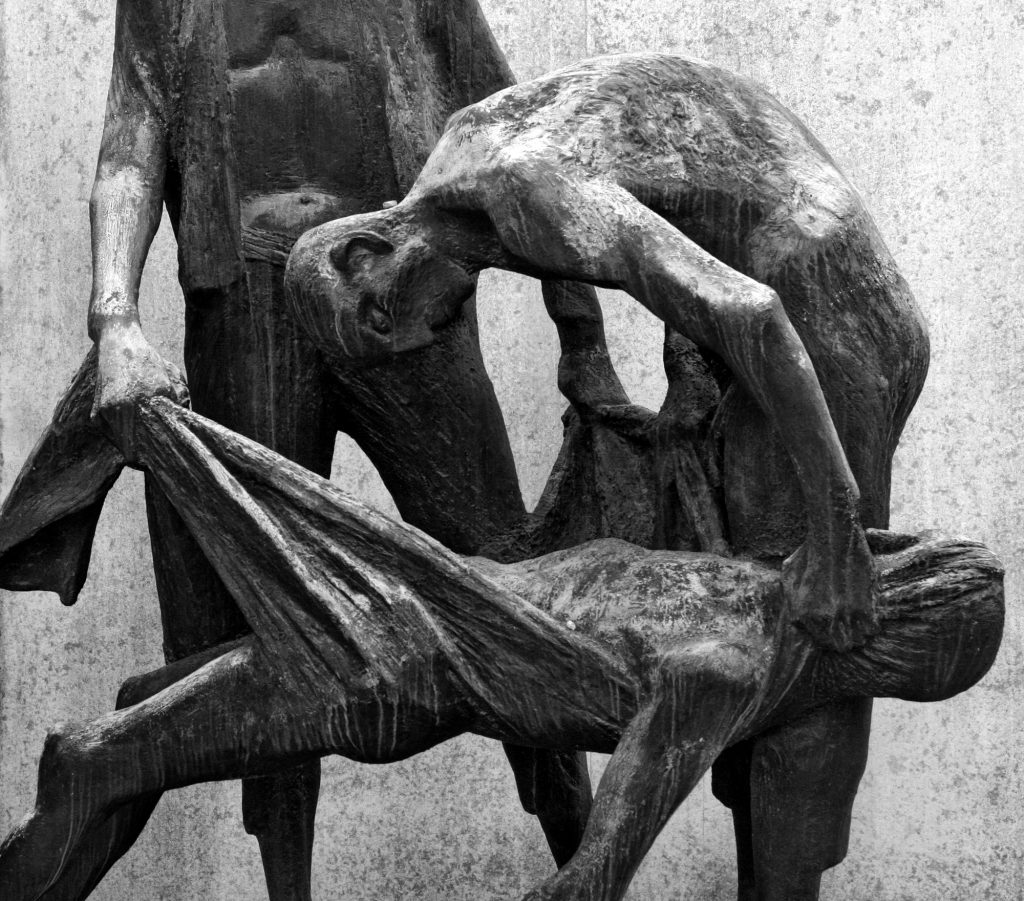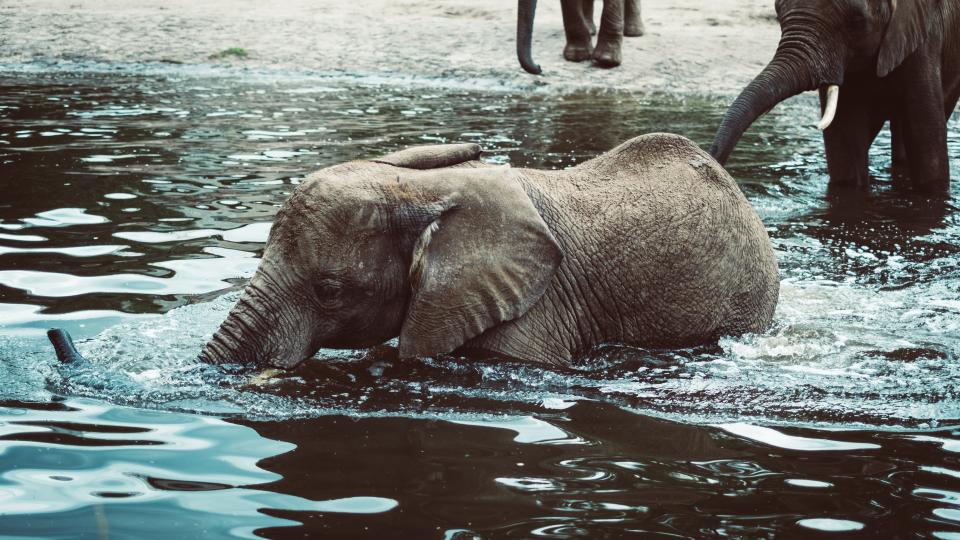When you read articles or books about genocides, you have only one question in your mind: “Why do people do that?” It’s hard to believe that human beings can do something that horrible to others. Unfortunately, perpetrators of genocides use their imagination and intellect for the wrong reasons and forget about compassion, humanism, and love.
The number of victims of genocide runs in the tens of millions. The majority of these people died not of hunger or diseases. They met their end facing the cruelest creatures on our planet — human beings. Our list of genocide essay topics does not cover all of the recognized genocides, but the ones with the highest death tolls. We haven’t included topics about the Holocaust, as there is a separate list about it.
Table of contents
- Armenian Genocide essay topics
- Rwandan genocide essay topics
- Genocide essay topics: genocides in the history of the Americas
- Genocide argumentative essay topics on genocides in the history of Europe
- Genocide essay topics: genocides in Asian history
- Genocide argumentative essay topics: genocides in Africa, Australia, and Haiti
- General genocide essay topics
- 45 helpful sources on genocide essay topics
- Genocide topic paper writing assistance
Armenian Genocide essay topics
- Was the Armenian Genocide real?
- The causes and justifications of the Armenian Genocide.
- Why does the Turkish government deny the Armenian Genocide?
- Compare and contrast the Armenian Genocide and the genocide against Jews during World War II.
- The consequences of the Armenian Genocide for modern Turkey.
- Compare and contrast the Darfur genocide and the Armenian Genocide.
- Why do countries such as Great Britain, the USA, and Israel refuse to use the term “genocide” regarding the Armenian Holocaust?
- Is the number of the Armenian population in a particular country a decisive factor when it comes to the recognition of genocide?
- What are the consequences of the Armenian Genocide for Armenian culture?
- What major historical events preceded the Armenian Genocide, and how did they influence this tragedy?
Rwandan genocide essay topics
- How could the Rwandan genocide have been prevented?
- What would you do if you were present during the Rwandan genocide?
- What role did the Vatican and the Church play in the Rwandan genocide?
- What was the reaction of the international community to the Rwandan genocide? Was it enough?
- How does the Rwandan community cope with the consequences of the genocide today?
- The political and economic consequences of the Rwandan genocide.
- Rape as a method of genocide in Rwanda.
- Analyze the Rwandan genocide based on the article about the ten stages of genocide by Dr. Gregory H. Stanton.
- Why was the United Nations Assistance Mission for Rwanda a failure?
- Was the genocide of Tutsis in Rwanda a response to the mass killings of Hutus in 1972?
- Why did the same region in Africa (Uganda, Burundi, and Rwanda) face two genocides in less than thirty years?
- How does the memory of the Rwandan genocide generate contemporary controversies and commemorations?
- How does the Holocaust relate to the Rwandan genocide?
- Was the Rwandan genocide a result of the colonial legacy?
- What were the main reasons for the Rwandan genocide?
- Explain the difference between two ethnic groups: Hutu and Tutsi. Was this difference the main cause of the genocide?
- What were the Arusha Accords about? Why weren’t they effective?
- Compare and contrast the genocides in Rwanda and Bosnia: reasons, implementation, consequences.
- How do you understand the expression “violence breeds violence”? Explain your point of view using the example of the Tutsi and Hutu genocides.
- The consequences of the Rwandan genocide for the African continent.
Genocide essay topics: genocides in the history of the Americas
- Should the USA interfere if the genocide takes place in another country?
- Can we use the term “genocide” when regarding the interactions of Native Americans and Europeans?
- Is Christopher Columbus a national hero or the pioneer of genocide?
- How did the Geneva Conventions of the 1960s affect the life of Native Nations of North America?
- The genocide of Native Americans in the Indian residential schools in Canada.
- What were the main causes of the Guatemalan genocide?
- What signs of the genocide did slavery in the United States have?
- How did the genocide in Haiti (1804) affect the US Civil War?
- Did European invaders commit genocide in the Americas?
- Analyze the main stages of the Guatemalan genocide.
Genocide argumentative essay topics on genocides in the history of Europe
- How would Marx and Engels explain the causes of the Holodomor?
- Why can the Holodomor be considered genocide?
- Why can the Srebrenica massacre be considered genocide?
- Was the Bosnian genocide inevitable during the Bosnian War in 1992-1995?
- What was the reaction of the United Nations to the Bosnian genocide?
- Why did the Bosnian genocide happen?
- Were Jews the only victims of the Nazi genocide?
- What international laws did the Kosovo genocide violate?
- Why is the genocidal nature of the Great Hunger in Ireland and the Holodomor in Ukraine questioned?
- Compare and contrast the Kazakh famine (1930-1933) and the Holodomor (1932-1933). Although these tragedies were a result of the same regime, their causes and consequences were not similar.
Genocide essay topics: genocides in Asian history
- Official and non-official reasons for the deportation of the Chechens and Ingush.
- Analyze the Nanking Massacre as a genocidal campaign of Japan during the Second Sino-Japanese War.
- Why did the international community fail to prevent the Tamil genocide by the Sri Lankan government?
- Compose a reflection essay on the movie “First They Killed My Father” (2017).
- Why did it take so long to recognize the Anfal campaign as Kurdish genocide?
- Explain the term “cultural genocide.” Use the example of Japanese policy in Korea in 1910-1945.
- Compare and contrast the policies of genocide implemented by the governments under the rule of Adolf Hitler and Pol Pot.
- How did the Khmer Rouge regime use children?
- The signs of genocide in the Syrian Civil War.
- The consequences of the Syrian Civil War for European countries.
Genocide argumentative essay topics: genocides in Africa, Australia, and Haiti
- The Darfur genocide: the first genocide of the 21st century.
- The main causes of the Darfur genocide.
- The consequences of the genocide in Darfur.
- How does the genocide in Congo differ from other known genocides?
- Can the Ethiopian Red Terror be considered genocide?
- What consequences have genocides in Africa had for African cultures?
- Can systematic Indigenous child removal in Australia during the Stolen Generations be classified as a genocidal act?
- Did Australian Aboriginal genocide take place?
- Why can the 1804 Haiti massacre be considered a unique historical event?
- Could the 1804 Haiti massacre be justified?
General genocide essay topics
- Why should the genocides be studied in history classes?
- What is the difference between genocide and war?
- What psychological effect does genocide have on adolescents?
- Sexual violence as a weapon of war and genocide.
- Max Weber’s classification of genocides.
- Compare and contrast the theories regarding genocide created by Weber and Ehrenreich.
- Compare and contrast two genocides on the basis of religion.
- What are the main reasons for the race riots over the course of human history?
- What conditions make non-violent citizens support genocides?
- Why are genocides worse than wars?
- Why do governments start genocides, and why do the populations support them?
- Why doesn’t the Convention on the Prevention and Punishment of the Crime of Genocide work?
- What is an effective way to prevent genocides?
- Who is responsible for genocides: those who give the orders or those who carry them out?
- Compare and contrast the terms “genocide” and “ethnocide.”
- How was colonialism a reason for genocides over the course of human history?
- Explain the term “ethnic cleansing.” Is it always a presage of genocide?
- Are international laws on genocide effective?
- Is the use of military force justified regarding prevention or stopping genocide?
- How do forensic anthropologists help to reconstruct the course of genocides?
- Fundamental attribution error as one of the main reasons for racial and religious genocides.
- What human rights are massively violated during genocides?
- The economic effects of genocides on a state in the long run.
- The origin and interpretations of the term “genocide.”
- Are there similarities in the political leaders who begin genocides?
- Are there any strategies of surviving the genocide, or is it pure luck? Use the memoirs of survivors as a source.
- Why do world leaders allow legitimate genocides to happen?
- Social stratification as one of the main reasons for genocides over history.
- Would you support the creation of a world peacekeeping force aimed at deploying and stopping genocides?
- Do world leaders have the interest to stop genocides in other countries?
- What are the main traits of a genocide?
- Why is the theorizing of genocides complex?
- What are the benefits and dangers of universal jurisdiction regarding genocides?
- Why do the majority of genocides include torture, sexual violence, and public punishment, along with the physical destruction of the victims?
- Is genocide possible in a well-developed country?
The list of genocide essay topics has come to its end. The 105 topics presented here are clearly not enough to cover this dark part of human history. Therefore, we also suggest you to check our list of useful sources. It will help you to compose a well-researched genocide essay.
45 helpful sources on genocide essay topics
- Daniel Goldhagen, “Hitler’s Willing Executioners, Ordinary Germans and the Holocaust”
- David E. Stannard, “The American Holocaust: The Conquest of the New World”
- Stephen J. Gould, “The Mismeasure of Man”
- Doris Bergen, “War and Genocide: A Concise History of the Holocaust”
- Deborah Dwork, “Holocaust: A History”
- Saul Friedlander, “Nazi Germany and the Jews 1939-1945: The Years of Extermination”
- Timothy Snyder, “Bloodlands: Europe Between Hitler and Stalin”
- Anne Applebaum, “Gulag”
- Jan Gross, “Neighbors”
- Paul Preston, “The Spanish Holocaust”
- Adam Hochschild, “King Leopold’s Ghost: A Story of Greed, Terror and Heroism in Colonial Africa”
- Ben Kiernan, “The Pol Pot Regime: Race, Power, and Genocide in Cambodia Under the Khmer Rouge, 1975-1979”
- Scott Straus, “The Order of Genocide: Race, Power and War in Rwanda”
- Edward Kissi, “Revolution and Genocide in Ethiopia and Cambodia”
- Norman Naimark, “Stalin’s Genocides”
- Adam Jones, “Genocide: A Comprehensive Introduction”
- Ben Kiernan, “Blood and Soil: A World History of Genocide and Extermination From Sparta to Darfur”
- Manus I. Midlarsky, “The Killing Trap: Genocide in the Twentieth Century”
- Philip Spencer, “Genocide Since 1945”
- Greg Grandin, “The Last Colonial Massacre”
- Eric Weitz, “A Century of Genocide: Utopias of Race and Nation”
- Andreas Wimmer, “Nationalist Exclusion and Ethnic Conflict: Shadows of Modernity”
- Michael Mann, “The Dark Side of Democracy: Explaining Ethnic Conflict”
- Jared Cohen, “One Hundred Days of Silence: America and Rwanda Genocide”
- Cameron Hazel, “Britain’s Hidden Role in the Rwandan Genocide: The Cat’s Paw”
- Gerard Prunier, “The Rwanda Crisis: History of a Genocide”
- Linda Melvem, “Conspiracy to Murder: The Rwanda Genocide”
- Christian Scherrer, “Genocide and Crisis in Central Africa: Conflict Roots, Mass Violence and Regional War”
- Allan Thompson, “The Media and the Rwanda Genocide”
- Andrew Wallis, “Silent Accomplice: The Untold Story of France’s Role in the Rwandan Genocide”
- Jon Bridgman, “The Revolt of the Hereros”
- John Labadan, “Daily Lives of Civilians in Wartime Africa”
- Brendan C. Lindsay, “Murder State: California’s Native American Genocide 1846-1873”
- Helmuth Stoecker, “German Imperialism in Africa: From the Beginnings Until the Second World War”
- Jeremy Sarkin-Hughes, “Germany’s Genocide of the Herero”
- Taner Akçam, “From Empire to Republic: Turkish Nationalism and the Armenian Genocide”
- Taner Akçam, “The Young Turks’ Crime Against Humanity: The Armenian Genocide and Ethnic Cleansing in the Ottoman Empire”
- Stephan Astourian, “The Armenian Genocide: An Interpretation”
- Peter Balakian, “The Burning Tigris: The Armenian Genocide and America’s Response”
- Vahakn Dadrian, “The History of the Armenian Genocide”
- David Bloomfield, “Reconciliation After Violent Conflict: A Handbook”
- Robert Conquest, “The Harvest of Sorrow: Soviet Collectivization and the Terror-Famine”
- Alan Rosenbaum, “Armenian Genocide Denial: The Case Against Turkey”
- Yehuda Bauer, “The Place of the Holocaust in Contemporary History”
- Raymond Kevorkian, “The Armenian Genocide: A Complete History”
Genocide topic paper writing assistance
In case our topics and sources aren’t enough, and you still need help with your essay on Armenian genocide or any other topic – apply to the EssayShark writing service. We’re a team of experts who provide high-quality academic assistance to students. Don’t have enough time for your homework? Don’t worry!
EssayShark writers are available 24/7! We’ll deal with any deadline, discipline, and topic. Click the order button and deal with academic papers easily!









